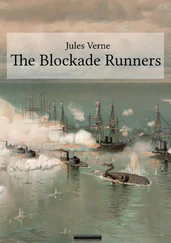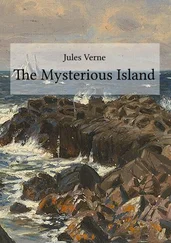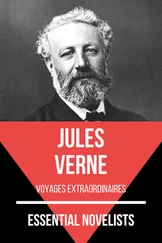Nova Zembla, discovered by Willoughby, in 1553; Weigatz Island, by Barrough, in 1556; the West Coast of Greenland, by Davis, in 1585; Davis’s Straits, by Davis, in 1587; Spitzbergen, by Willoughby, in 1596; Hudson’s Bay, by Hudson, in 1610; Baffin’s Bay, by Baffin, in 1616.
In more modern times, Hearne, Mackenzie, John Ross, Parry, Franklin, Richardson, Beechey, James Ross, Back, Dease, Simpson, Rae, Inglefield, Belcher, Austin, Kellett, Moore, McClure, Kennedy, and McClintock have continually searched those unknown lands.
The limits of the northern coasts of America had been fixed, and the NorthWest passage almost discovered, but this was not enough; there was something better still to be done, and John Hatteras had twice attempted it by equipping two ships at his own expense. He wanted to reach the North Pole, and thus crown the series of English discoveries by one of the most illustrious attempts. To attain the Pole was the aim of his life.
After a few successful cruises in the Southern seas, Hatteras endeavoured for the first time, in 1846, to go north by Baffin’s Sea; but he could not get beyond the seventy-fourth degree of latitude; he was then commanding the sloop Halifax . His crew suffered atrocious torments, and John Hatteras pushed his adventurous rashness so far, that, afterwards, sailors were little tempted to recommence similar expeditions under such a chief.
However, in 1850 Hatteras succeeded in enrolling on the schooner Farewell about twenty determined men, tempted principally by the high prize offered for their audacity. It was upon that occasion that Dr. Clawbonny entered into correspondence with John Hatteras, whom he did not know, requesting to join the expedition, but happily for the doctor the post was already filled up. The Farewell , following the track taken in 1817 by the Neptune from Aberdeen, got up to the north of Spitzbergen as far as the seventy-sixth degree of latitude. There the expedition was compelled to winter. But the sufferings of the crew from the intense cold were so great that not a single man saw England again, with the exception of Hatteras himself, who was brought back to his own country by a Danish whaler after a walk of more than two hundred miles across the ice.
The sensation produced by the return of this one man was immense. Who in future would dare to follow Hatteras in his mad attempts? However, he did not despair of beginning again. His father, the brewer, died, and he became possessor of a nabob’s fortune. Soon after a geographical fact bitterly stirred up John Hatteras. A brig, the Advance , manned by seventeen men, equipped by a merchant named Grinnell, under the command of Dr. Kane, and sent in search of Sir John Franklin, advanced in 1853 through Baffin’s Sea and Smith’s Strait, beyond the eighty-second degree of boreal latitude, much nearer the Pole than any of his predecessors. Now, this vessel was American, Grinnell was American, and Kane was American. The Englishman’s disdain for the Yankee will be easily understood; in the heart of Hatteras it changed to hatred; he was resolved to outdo his audacious competitor and reach the Pole itself.
For two years he had been living incognito in Liverpool, passing himself off as a sailor; he recognised in Richard Shandon the man he wanted; he sent him an offer by an anonymous letter, and one to Dr. Clawbonny at the same time. The Forward was built, armed, and equipped. Hatteras took great care to conceal his name, for had it been known he would not have found a single man to accompany him. He was determined not to take the command of the brig except in a moment of danger, and when his crew had gone too far to draw back. He had in reserve, as we have seen, such offers of money to make to the men that not one of them would refuse to follow him to the other end of the world; and, in fact, it was right to the other end of the world that he meant to go. Circumstances had become critical, and John Hatteras had made himself known. His dog, the faithful Dick, the companion of his voyages, was the first to recognise him. Luckily for the brave and unfortunately for the timid, it was well and duly established that John Hatteras was the captain of the Forward .
CHAPTER XIII
THE PROJECTS OF HATTERAS
Table of Contents
The appearance of this bold personage was appreciated in different ways by the crew; part of them completely rallied round him, either from love of money or daring; others submitted because they could not help themselves, reserving their right to protest later on; besides, resistance to such a man seemed, for the present, difficult. Each man went back to his post. The 20th of May fell on a Sunday, and was consequently a day of rest for the crew. A council was held by the captain, composed of the officers, Shandon, Wall, Johnson, and the doctor.
“Gentlemen,” said the captain in that voice at the same time soft and imperious which characterised him, “you are aware that I intend to go as far as the Pole. I wish to know your opinion about this enterprise. Shandon, what do you think about it?”
“It is not for me to think, captain,” coldly replied Shandon; “I have only to obey.”
Hatteras was not surprised at the answer.
“Richard Shandon,” continued he, not less coldly, “I beg you will say what you think about our chance of success.”
“Very well, captain,” answered Shandon, “facts are there, and answer for me; attempts of the same kind up till now have always failed; I hope we shall be more fortunate.”
“We shall be. What do you think, gentlemen?”
“As far as I am concerned,” replied the doctor, “I consider your plan practicable, as it is certain that some day navigators will attain the boreal Pole. I don’t see why the honour should not fall to our lot.”
“There are many things in our favour,” answered Hatteras; “our measures are taken in consequence, and we shall profit by the experience of those who have gone before us. And thereupon, Shandon, accept my thanks for the care you have taken in fitting out this ship; there are a few evil-disposed fellows amongst the crew that I shall have to bring to reason, but on the whole I have only praises to give you.”
Shandon bowed coldly. His position on the Forward , which he thought to command, was a false one. Hatteras understood this, and did not insist further.
“As to you, gentlemen,” he continued, turning to Wall and Johnson, “I could not have secured officers more distinguished for courage and experience.”
“Well, captain, I’m your man,” answered Johnson, “and although your enterprise seems to me rather daring, you may rely upon me till the end.”
“And on me too,” said James Wall.
“As to you, doctor, I know what you are worth.”
“You know more than I do, then,” quickly replied the doctor.
“Now, gentlemen,” continued Hatteras, “it is well you should learn upon what undeniable facts my pretension to arrive at the Pole is founded. In 1817 the Neptune got up to the north of Spitzbergen, as far as the eighty-second degree. In 1826 the celebrated Parry, after his third voyage to the Polar Seas, started also from Spitzbergen Point, and by the aid of sledge-boats went a hundred and fifty miles northward. In 1852 Captain Inglefield penetrated into Smith’s Inlet as far as seventy-eight degrees thirty-five minutes latitude. All these vessels were English, and Englishmen, our countrymen, commanded them.” Here Hatteras paused. “I ought to add,” he continued, with a constrained look, and as though the words were unable to leave his lips—“I must add that, in 1854, Kane, the American, commanding the brig Advance , went still higher, and that his lieutenant, Morton, going across the icefields, hoisted the United States standard on the other side of the eighty-second degree. This said, I shall not return to the subject. Now what remains to be known is this, that the captains of the Neptune , the Enterprise , the Isabel , and the Advance ascertained that proceeding from the highest latitudes there existed a Polar basin entirely free from ice.”
Читать дальше












